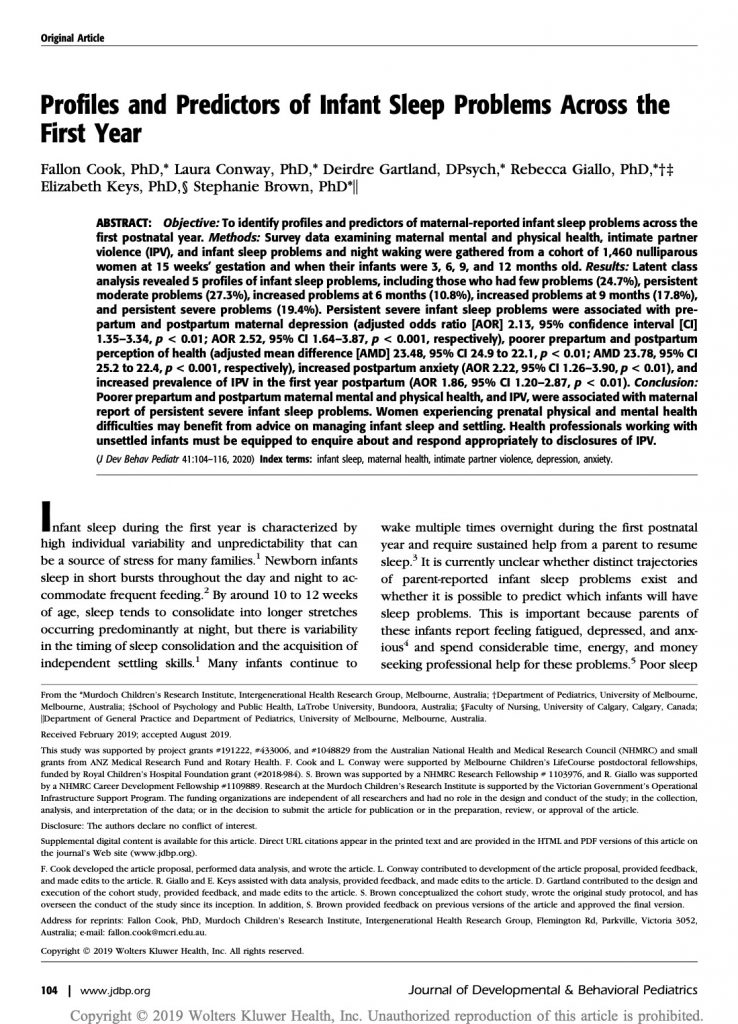If you are unable to access publications, please email us at slumber.lab@ubc.ca to request access.
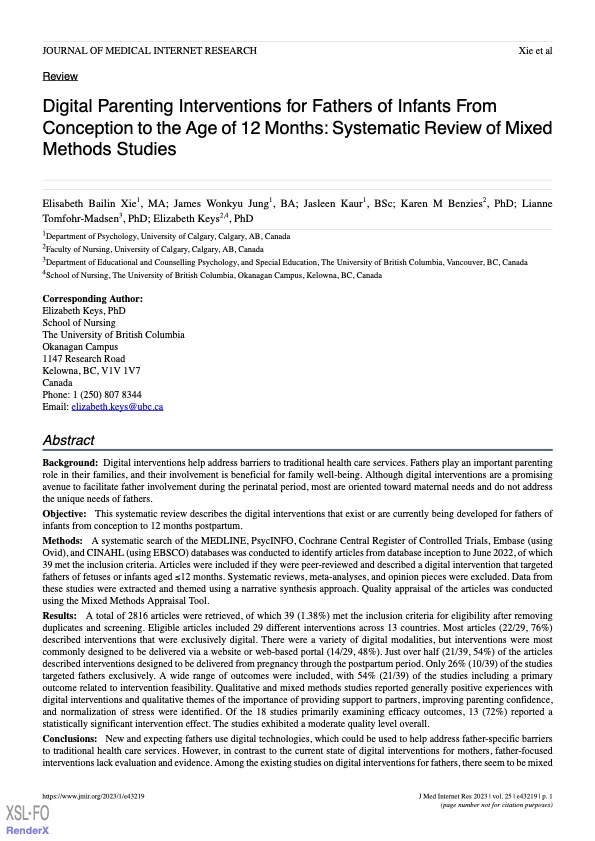
Digital Parenting Interventions for Fathers of Infants From Conception to the Age of 12 Months: Systematic Review of Mixed Methods Studies. Journal of Medical Internet Research.
This systematic review describes the digital interventions that exist or are currently being developed for fathers of infants from conception to 12 months postpartum. Among the existing studies on digital interventions for fathers, there seem to be mixed findings regarding their feasibility, acceptability, and efficacy. There is a need for more development and standardized evaluation of interventions that target father-identified priorities.

Feasibility testing of the ABCs of SLEEPING mobile app intervention to improve sleep in school-aged children. Clinical Practice in Paediatric Psychology.
In this study we describe the feasibility testing of a smartphone-application designed to improve access to individualized information about sleep and healthy sleep practices entitled “The ABCs of SLEEPING.” Our results demonstrated its acceptability and preliminary efficacy; however, the app was not implemented daily as intended. This research also demonstrates the importance of evaluating interventions for the end-user.
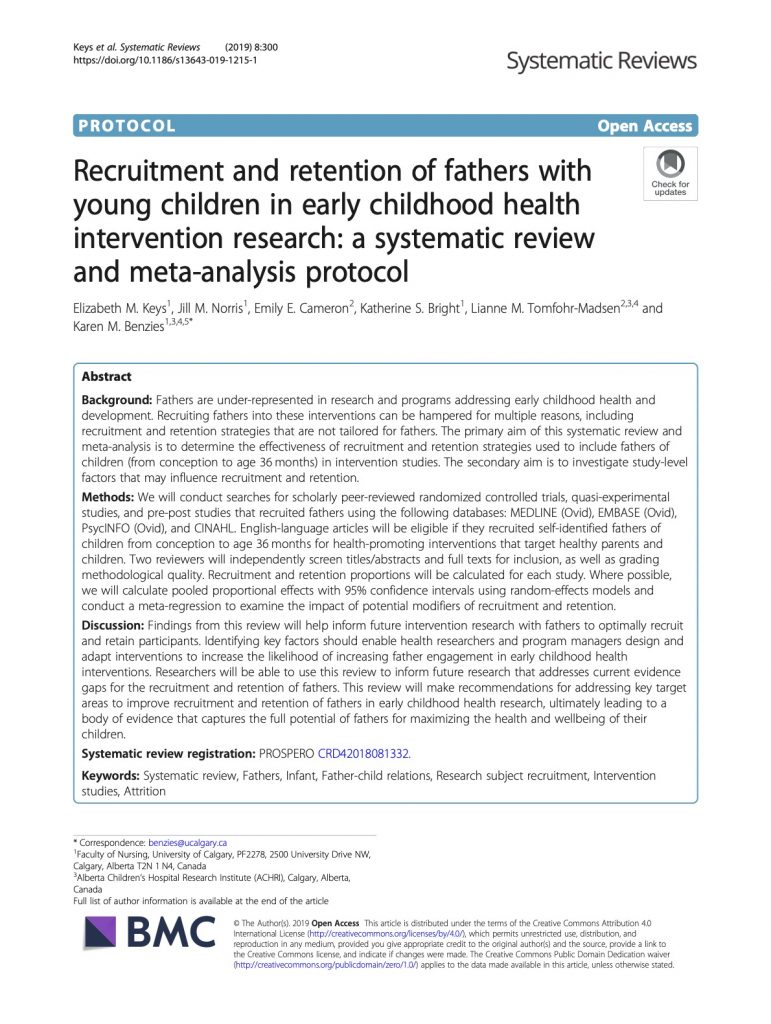
The primary aim of this systematic review and meta-analysis is to determine the effectiveness of recruitment and retention strategies used to include fathers of children (from conception to age 36 months) in intervention studies. The secondary aim is to investigate study-level factors that may influence recruitment and retention.
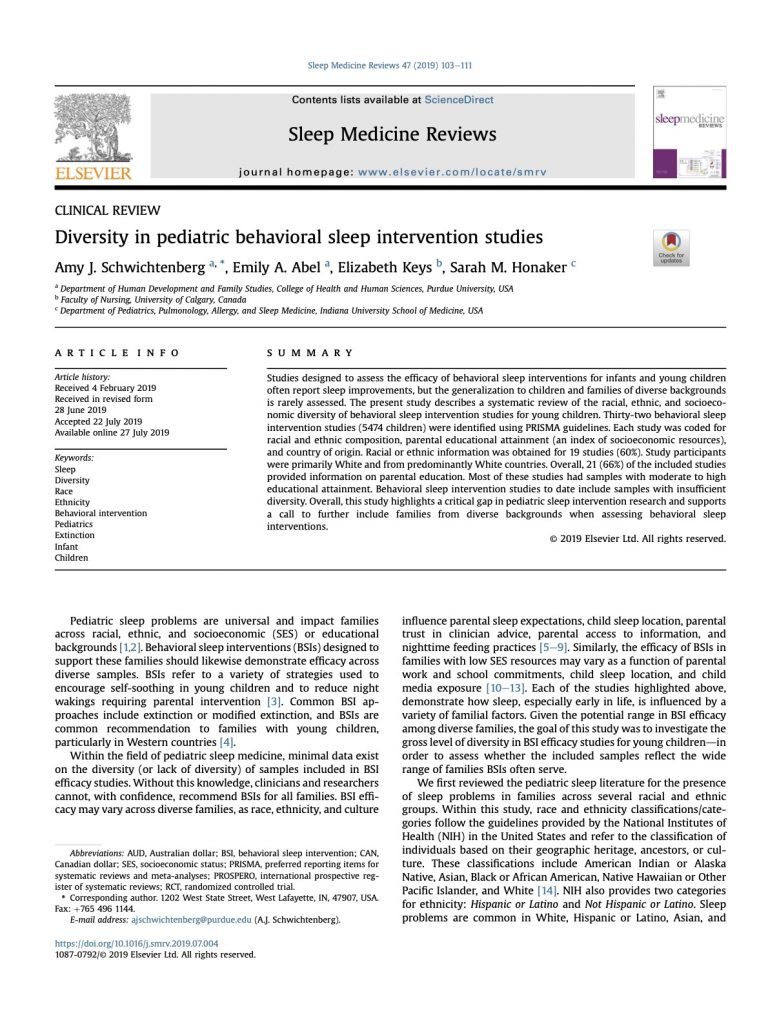
Diversity in pediatric behavioral sleep intervention studies. Sleep Medicine Reviews.
The present study describes a systematic review of the racial, ethnic, and socioeconomic diversity of behavioral sleep intervention studies for young children. This study highlights a critical gap in pediatric sleep intervention research and supports a call to further include families from diverse backgrounds when assessing behavioral sleep interventions.

Determining research priorities of young Canadian families (the Family Research Agenda Initiative Setting Project – FRAISE). Frontiers in Public Health, Public Health Education and Promotion.
This study will highlight parental health concerns and recommend parent-identified research priorities to inform future research projects needed to support the health of families between conception to age 24 months. Understanding the health research priorities of families in the community will help ensure future research contributes to meaningful changes in the health of young children, parents/knowledge users, and families.
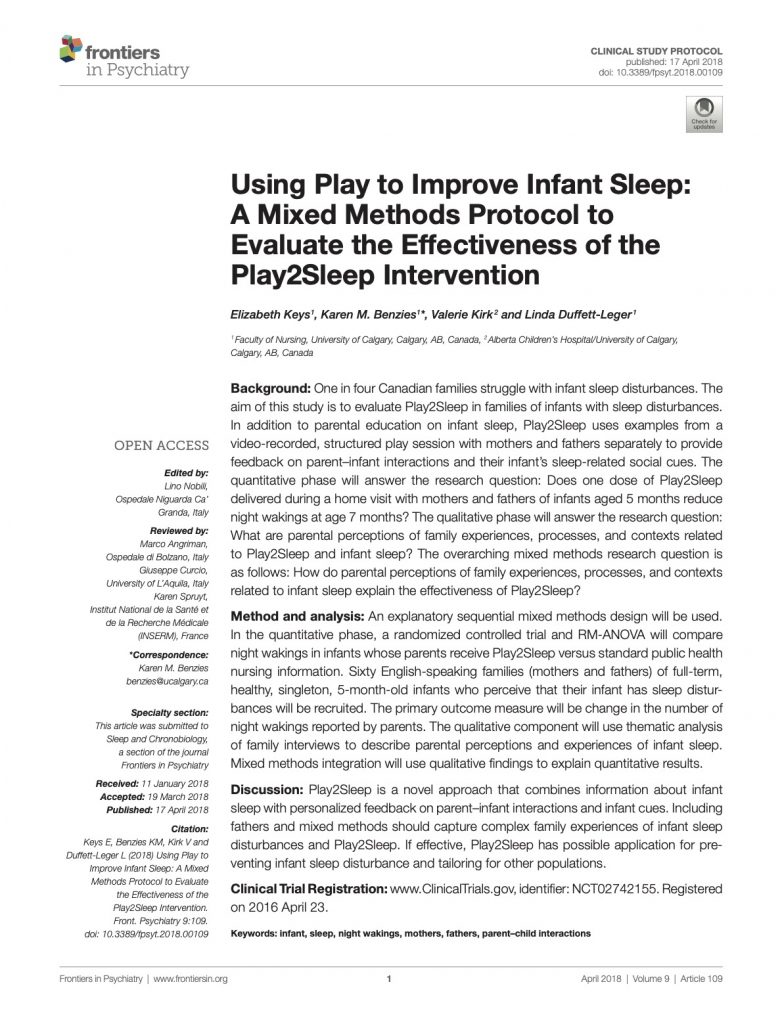
The aim of this study is to evaluate Play2Sleep in families of infants with sleep disturbances. In addition to parental education on infant sleep, Play2Sleep uses examples from a video-recorded, structured play session with mothers and fathers separately to provide feedback on parent–infant interactions and their infant’s sleep-related social cues. The overarching mixed methods research question is as follows: How do parental perceptions of family experiences, processes, and contexts related to infant sleep explain the effectiveness of Play2Sleep?
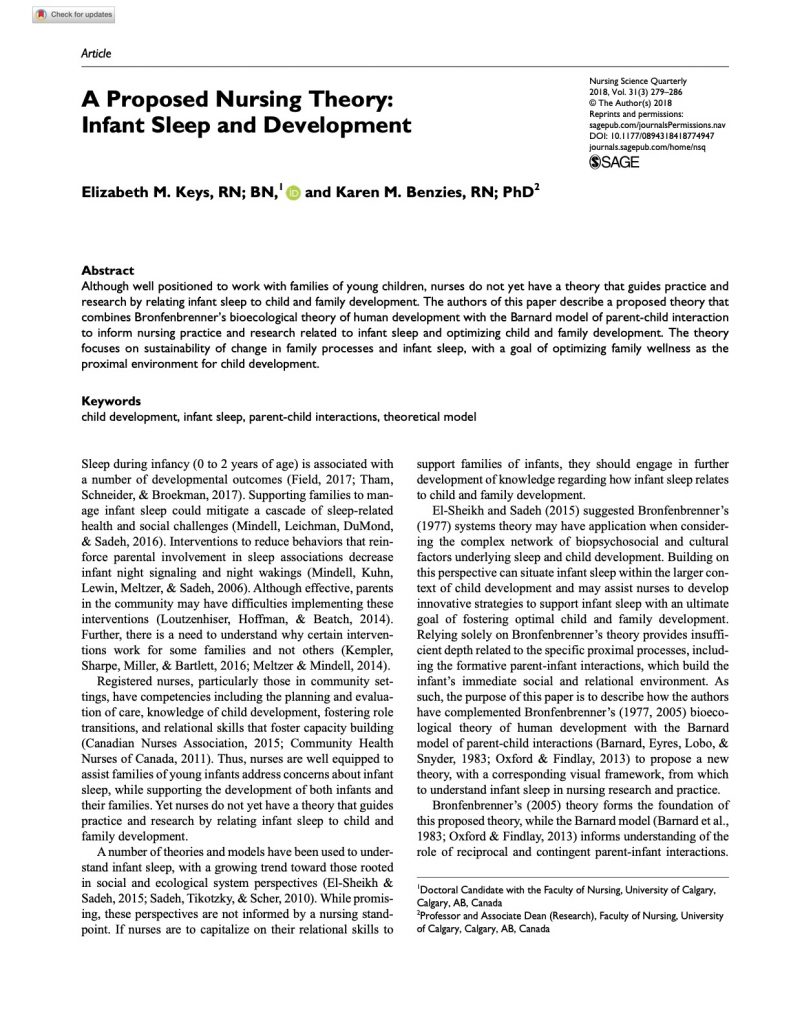
The authors of this paper describe a proposed theory that combines Bronfenbrenner’s bioecological theory of human development with the Barnard model of parent-child interaction to inform nursing practice and research related to infant sleep and optimizing child and family development. The theory focuses on sustainability of change in family processes and infant sleep, with a goal of optimizing family wellness as the proximal environment for child development.

The New Parent Checklist is a comprehensive evidence-informed self-reflective tool with promising content and face validity. Depending on parental characteristics and infant age, certain items of the New Parent Checklist have particular utility but may also require further adaptation and testing. Local resources for information and/or support are included in the tool and could be easily adapted by other regions to incorporate their own local resources.


